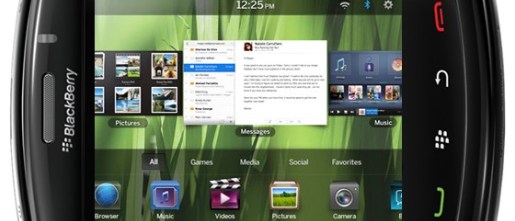Yesterday at the BlackBerry DevCon conference in San Francisco, RIM announced a new unified operating system, BBX, for future BlackBerry smartphone and tablet devices due to roll out early 2012.
RIM has suffered a lot this past year with shares dropping 60 per cent, huge network-outage issues and poor sales figures for the BlackBerry PlayBook in light of strong competition from Apple and Google. RIM even announced that it would have to cut 2,000 jobs from its workforce earlier this year.
It seems only reasonable then, that RIM would have to approach the mobile community with renewed vitality, hope and most importantly a new edge to make it stand tall above the competition.
BBX to aid RIM's fortunes
The new operating system is being dubbed BBX and RIM is claiming it will combine the best features from both the traditional and well-supported BlackBerry OS, with the modern feel and hardware acceleration of QNX, the PlayBook operating system, providing a unified platform for development.

In typical RIM fashion, new BBX devices will have certifications spilling out from their ports containing words such as security, reliability and even safety, thanks given mostly to the well-travelled, real-time Unix-like QNX core.
RIM has focused heavily on cross-platform support and on the stage unleashed a terrifyingly high-performance, smooth demo of HTML5-based applications and WebGL demos, produced with the aid of the WebWorks development platform, exposing full sensor and input device access to HTML5 developers. If that wasn’t enough, RIM has confirmed support for all existing WebWorks HTML5 applications and all PlayBook applications, whether native, flash or HTML5, with continued support for new native C++ applications.
Android support
Here’s the real kicker though, there will be a special Blackberry runtime included for running Android Applications.
This is all a very reasonable step to take, despite having a well-polished, high-performance, real-time operating system, the PlayBook has been heavily criticised for its lack of user applications. This was the primary reason behind the device’s abysmal sales figures; but RIM has not taken a step here, it's taken leaps and bounds.
The overall atmosphere, both from developers and shareholders was a very positive one, though tinged with a little disappointment that a development device, running the new BBX, had not been made available, with RIM unable to provide any solid dates. This writer has to agree that the impact could have been potentially greater had developers been able to place their hands on what look like an incredibly well-built operating system.
We've never typically looked in the direction of RIM for its mobile experiences, yet despite the exceptionally poor presentation skills of the RIM staff, yesterday’s conference has left a serious impression.
Without a doubt BBX-touting BlackBerry devices are something to keep an eye on. It’s early days, but there’s real potential. What do you think?













